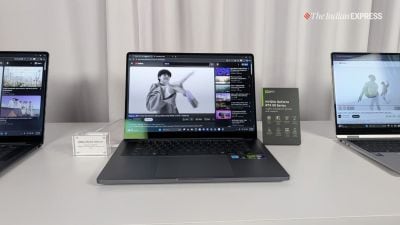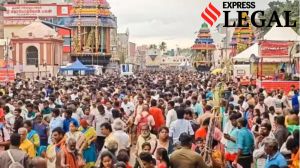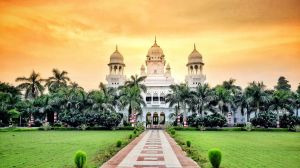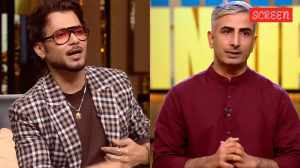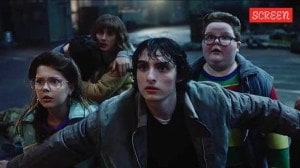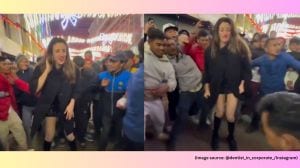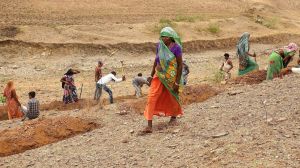Why Putin won’t go to South Africa for the BRICS summit in August
ICC, an international court, has issued a warrant of arrest against Russia's President for alleged war crimes. South Africa accepts the jurisdiction of the ICC. India does not.
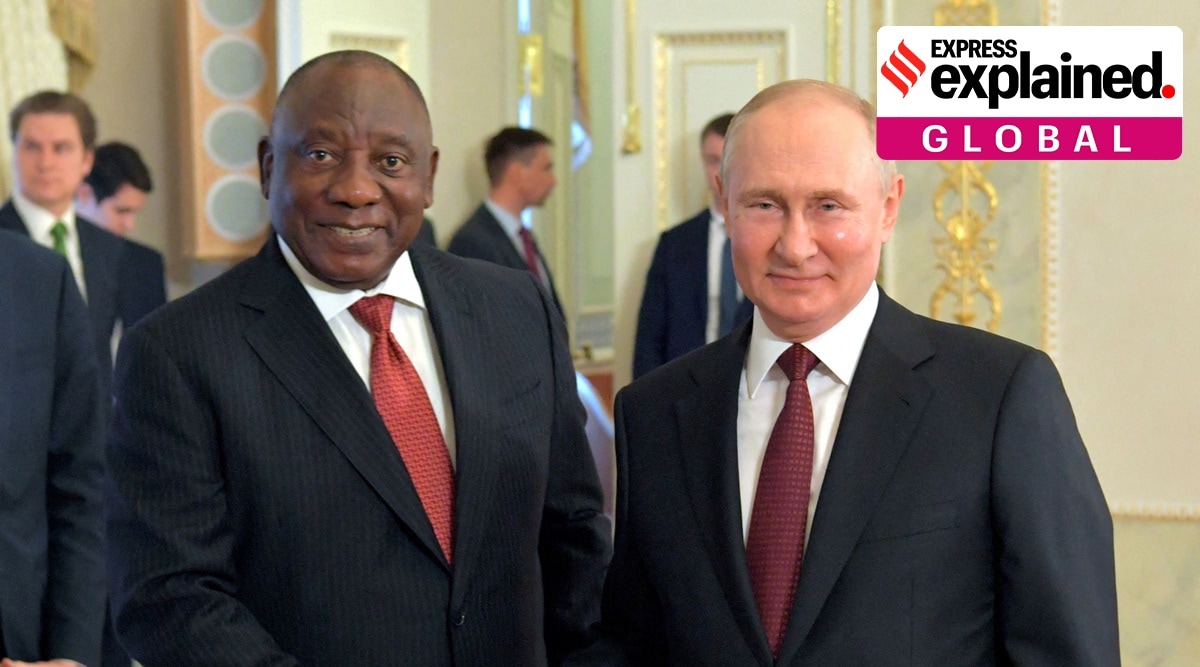 Russian President Vladimir Putin shakes hands with South African President Cyril Ramaphosa after a meeting with a delegation of African leaders to discuss their proposal for peace talks between Russia and Ukraine, in Saint Petersburg, Russia June 17, 2023. Yevgeny Biyatov/Host photo agency RIA Novosti via Reuters
Russian President Vladimir Putin shakes hands with South African President Cyril Ramaphosa after a meeting with a delegation of African leaders to discuss their proposal for peace talks between Russia and Ukraine, in Saint Petersburg, Russia June 17, 2023. Yevgeny Biyatov/Host photo agency RIA Novosti via Reuters South Africa has said that President Vladimir Putin of Russia will not attend a scheduled summit of the BRICS grouping in Johannesburg from August 22-24. The decision has been taken by “mutual agreement”, South Africa, which has the BRICS presidency, said.
What is the significance of this development?
A difficult situation has been resolved for South Africa, which would have been theoretically obligated to arrest Putin for alleged war crimes if he had arrived in its jurisdiction.
South Africa had earlier sought an exemption from the obligation, arguing that arresting Putin would amount to a declaration of war, and could potentially scupper the efforts to end the fighting in Ukraine, a Reuters report said.
But why would South Africa be obligated to arrest Putin?
On March 17, the International Criminal Court (ICC) had issued “warrants of arrest for two individuals in the context of the situation in Ukraine: Mr Vladimir Vladimirovich Putin and Ms Maria Alekseyevna Lvova-Belova”.
Lvova-Belova is the “Commissioner for Children’s Rights in the Office of the President of the Russian Federation”.
The ICC, which is headquartered in The Hague, Netherlands, is an independent judicial body that began functioning on July 1, 2002, to prosecute the most heinous offences where a country’s own legal machinery failed to act — like in Rwanda and erstwhile Yugoslavia.
Unlike the International Court of Justice (ICJ), which deals with countries and inter-state disputes, the ICC prosecutes individuals — it “investigates and, where warranted, tries individuals charged with the gravest crimes of concern to the international community: genocide, war crimes, crimes against humanity and the crime of aggression”.
South Africa has said it is neutral in the war in Ukraine. But as a member of the ICC, it is in theory obligated to execute the warrant for arrest.
What has Putin done for the warrants to be issued against him?
According to a press release issued by the ICC at the time, Putin, 70, and Lvova-Belova, 38, are “allegedly responsible for the war crime of unlawful deportation…and unlawful transfer” of children from occupied areas of Ukraine to the Russian Federation”, for which they have been charged under “Articles 8(2)(a)(vii) and 8(2)(b)(viii) of the Rome Statute”.
The Rome Statute, adopted in 1998, is the international treaty that established the ICC.
According to the ICC, “the crimes were allegedly committed in Ukrainian occupied territory at least from 24 February 2022”, the day Russian forces invaded Ukraine.
But does the ICC have the authority to prosecute President Putin?
Russia has repeatedly said that it does not.
The ICC’s jurisdiction is limited to offences that occurred after it came into existence on July 1, 2002, and were committed either in a country that has ratified the agreement, or by a national of a country that has ratified the agreement.
Russia is not one of the 123 States Parties to the Rome Statute that recognise the authority of the ICC. The United States isn’t a signatory either, and it has over the years repeatedly and aggressively denounced the ICC.
China and India too do not recognise the ICC’s jurisdiction.
Even Ukraine is not a State Party to the Rome Statute. However, in 2014, it accepted “the jurisdiction of the Court over alleged crimes committed on its territory from 21 November 2013 to 22 February 2014” and then, in 2015, accepted the ICC’s jurisdiction “from 20 February 2014 onwards, with no end date”.
So is there a risk of arrest for Putin outside Russia?
Only if he travels to a State Party to the ICC — like South Africa — and only in theory.
This is the first time that the ICC has issued an arrest warrant against the head of one of the five permanent members of the UN Security Council. Sudan’s former President Omar al-Bashir and Libya’s Muammar Gaddafi are the only other leaders to have been indicted by the ICC while serving as head of state, a Reuters report said.
The charges against Gaddafi were dropped after he was overthrown and killed in 2011. Bashir, who was indicted in 2009, remained President until 2019 and travelled to many ICC Member States during this period. Out of power, he has been tried in Sudan, but he has not been handed over to the ICC.
The ICC charged Kenya’s William Ruto and Uhuru Kenyatta before they became President of their country, but subsequently dropped the charges.
- 01
- 02
- 03
- 04
- 05


